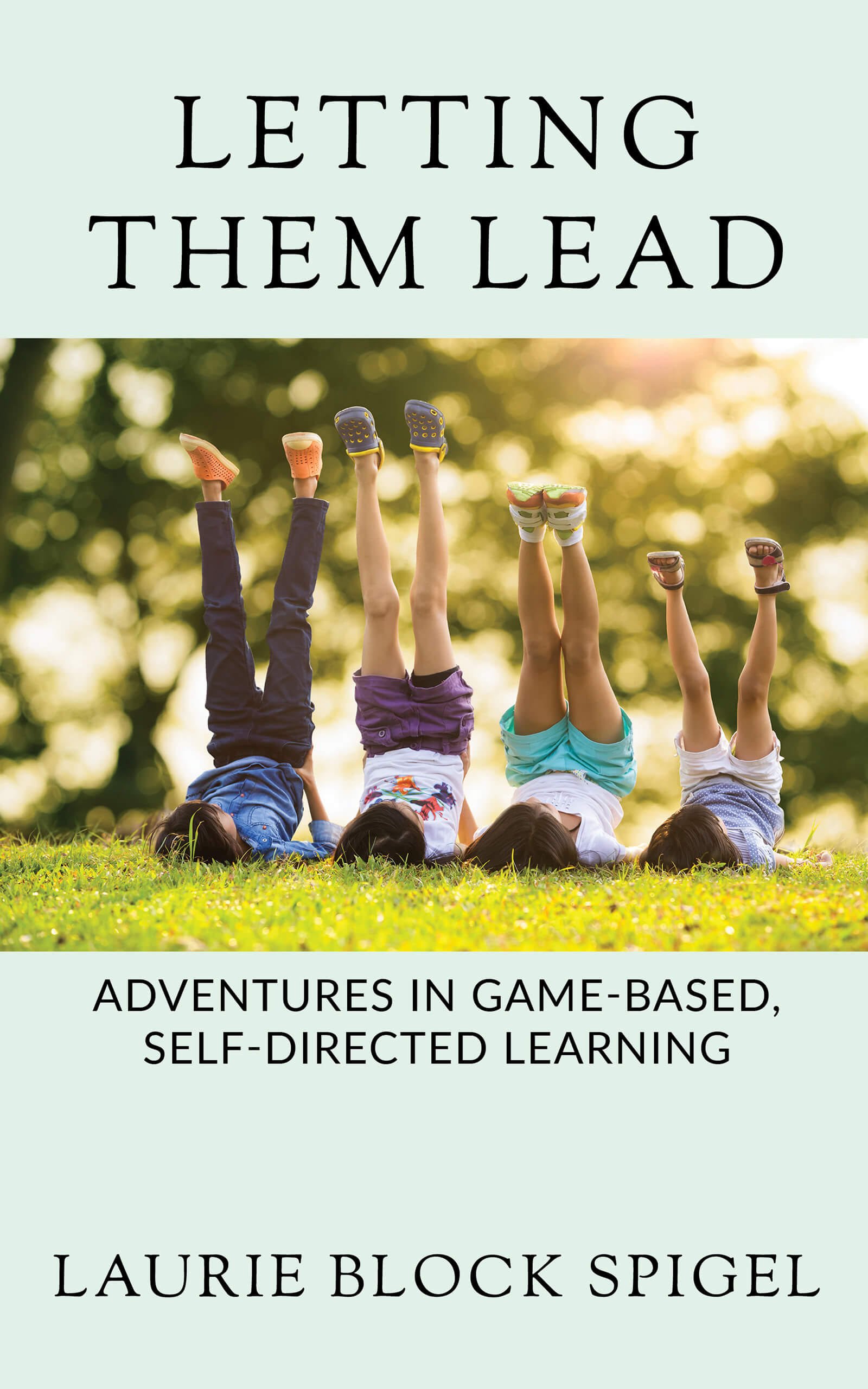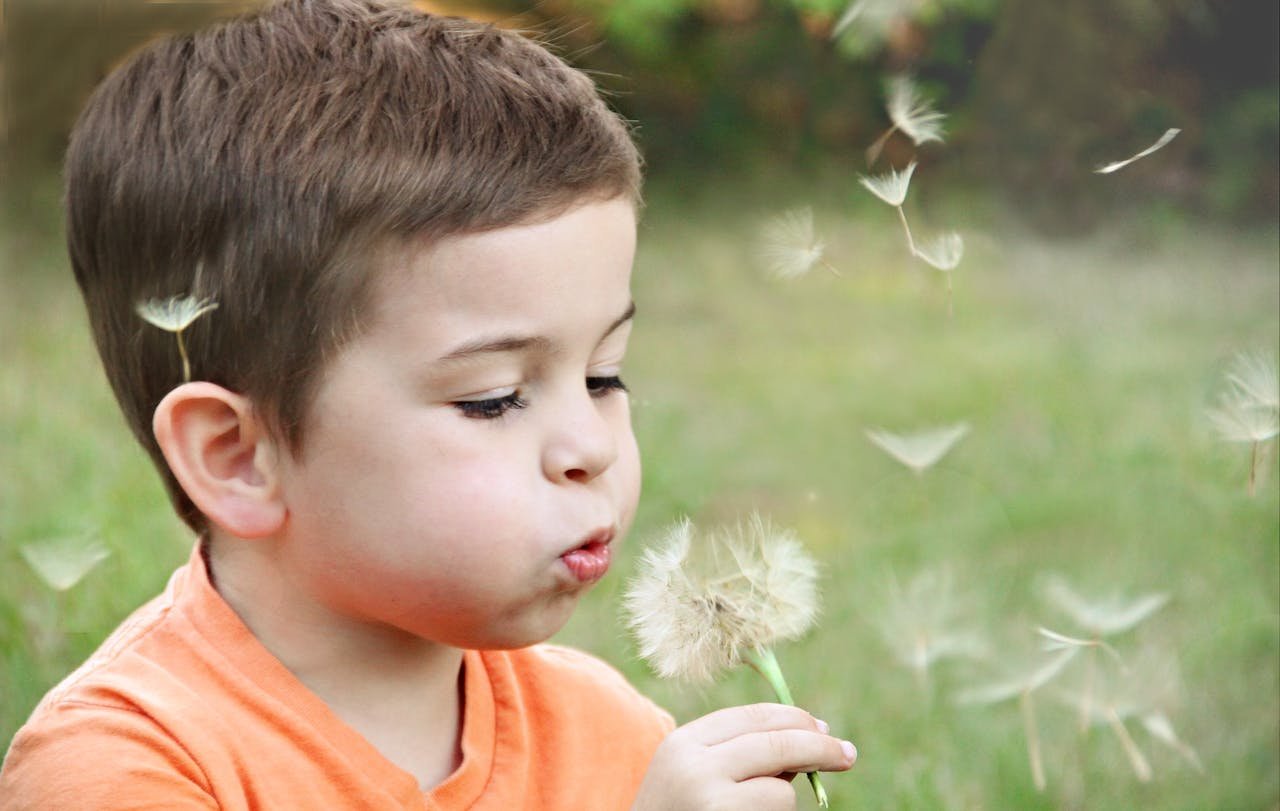

PAST EVENT: Maine Homeschool Exchange
Skyline Pop-Up Accordion Memoir made by Laurie Spigel for a class

Letting Them Lead
I have a brand new book launching on March 5th called Letting Them Lead: Adventures In Game-Based, Self-Directed Learning. This book is geared towards educators, parents and learners of all ages and gives strategies for centering children and students in their own learning journey.

Educating The Whole Child
It is ridiculous to think that a teacher or parent can educate just a part of the child, but that is the traditional approach, with each subject taught separately, relying solely on books, pen and paper. I hesitate to use terms like Holistic Education or Whole Child, because these terms are embraced by educational businesses (such as tutoring agencies), and by the Common Core Curriculum, both examples of non-holistic education.
The "whole child" view implies that the whole child is influenced by everything, and interacts with everything, with the whole world. In turn, the whole world is interacting with the child. Our children are aware of far more than they can express, and they are learning all the time. Taking this view, I can never fully plan what a student will learn. My understanding of their learning happens in hindsight, as I watch their development and reflect on the experience. Most often the child reaches for or receives something unplanned. The nature of this learning can be social, linguistic, creative, physical, mental or logical, or all of the above. It is impossible to plan or foresee this, because each child is different and each situation unfolds unpredictably.

Is Education Work Or Play?
Do you remember being scolded for playing? Perhaps you were told to straighten up and sit still, or to stop "being silly" or stop "fooling around" (demeaning terms for play). These are common experiences in a society where grown-ups hardly play at all. It is as if we have forgotten how to play, and play is reserved only for the very young, often only at recess, or only in sports.
Adults are mostly game watchers instead of game participants. Yet we remain aware that the spirit of play, which often has no obvious purpose or goal, is a magical ingredient that makes every experience more alive, and makes learning memorable.
If play is so elusive for adults, when does it stop for us as children? Does it stop with school?

Nurturing A Child’s Love Of Reading
When I was a child, reading gave me the chance to escape an unhappy reality. It was not a passive activity. It was astonishingly active. I may have been lying down or sitting, but I was in another place. My imagination was activated, and I felt as if I were living in a garret in London, or skulking through the walls of the Chateau d’If, or attending a young mother-to-be in confinement in rural 1800s Russia.
As I grew older I realized reading was more than a thrilling escape; it was a way to know myself better. Great writing reflects humanity, and we can see ourselves mirrored in complex characters and their stories. We have that sense of self-discovery, a personal awakening, through the reading of a good book. I remember this feeling at age four or five when I read And to Think That I Saw It on Mulberry Street*, by Dr. Seuss, a validation of my own imagination in a way that helped me to deal with the everyday world.

Visiting Museums With Children
I was a rambunctious, strong-willed, independent child, and my mother was determined this would not stop her from pursuing one of her passions: museums. She devised ways to keep me interested. I probably raced down the museum galleries yelling my head off, but somehow she kept me amused.
We played treasure hunt games, where she would direct me to find something. "Look for the hidden dog in a painting in this room," which I proudly pointed out once discovered. I never forgot the "Three Musicians" by Picasso, with a wagging tail keeping time and the rest of the large dog sitting in shadow under their legs. You can see it at MoMA. At the Metropolitan Museum you can pick up treasure hunt guides developed by curators just for kids. Browse the Greek galleries for animals or gods and goddesses mentioned in the Percy Jackson books. Find scenes and objects From the Mixed-up Files of Mrs. Basil E. Frankweiler. Search the African galleries or the arms and armor collection, or look for games of chess. You can download the guide before you go or pick it up at the information counter.

Six Family Games You Can Play Anywhere
In a box or on a fox! In a car or at a table! On the floor or out the door! Anywhere, anytime, if you are bored or antsy and need something to do, all you need is one or more fellow player, and these games are yours to play.
They develop skills in: communication, drawing, writing, collaboration, thinking on your feet (even if you’re sitting still), and creativity. One of these games (Trinterview) was created by my students during an Interview Class, while other games were invented by great artists and theater educators.
Here you will find six games the whole family can enjoy, with additional variations, that can be played almost anywhere. I have fond memories of playing all of them, with lots of laughter!